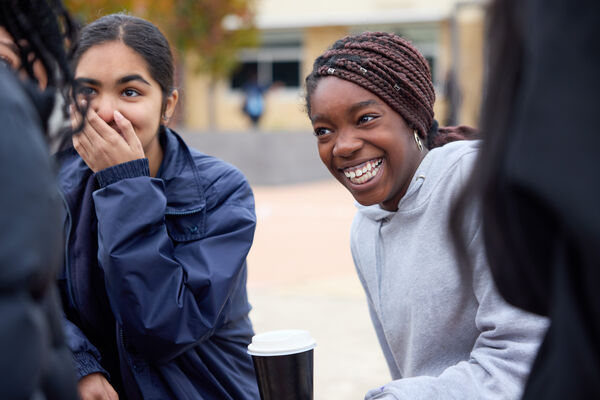Overview
Alignment with Be You Domains
-
Mentally Healthy Communities
-
Learning Resilience
Alignment with Australian Curriculum
- Health and PE
Target audience
- Primary school
- Secondary school
Target groups
- Small group
- Whole class
Aims
Real Friendships aims to enhance social wellbeing by empowering students with practical skills and strategies that promote the development of healthy friendships, enabling them to relate to their friends and peers more effectively.Program theory
Real Friendships has been developed based on the Collaborative for Academic, Social and Emotional Learning's (CASEL) framework for social/emotional learning and addresses all five of the competencies specified: self-awareness, self-management, responsible decision making, relationship skills, and social awareness. Additionally, Real Friendships draws on a strength-based approach, a social work practise theory that emphasises the self-determination and strength of the individual.Topics
The program covers the following topics: healthy friendships, communication styles and skills, responding to and resolving conflict, relating to friends and peers online, navigating friendship changes, belonging, connection and support networks.Cost
Program structure
Real Friendships runs over eight 45 minute sessions and is designed to be delivered in small groups or with a whole class.Instructor
- Psychologist
- Educator
- Wellbeing leader
Instructor training
Training is delivered either in-person (WA only), online through a live session or through the interactive eLearning platform. Multiple options are provided for training, enabling schools and their staff to select the mode most suitable for their context. The self-paced eLearning platform means that staff are able to revisit training as required. Training takes approximately 4 hours.Supporting resources or materials available with program
- Manual
- Other (please specify)
Other materials
eLearning Platform Videos Custom-made resources for activitiesOngoing support
Ongoing support is provided to program facilitators via phone and email and through the community of practice. Facilitators are also able to revisit the training via the eLearning platform as required.Parent involvement
- Follow-up information provided after program
- Written information provided to parents
Origin of program
Australia
Emerging Youth
Program authors
Janina Cousins
- PO Box 1062,Willagee Central WA 6156 Australia
Ratings
Summary of evidence factors
This is a summary of the evaluation or research study characteristics that contribute to the program’s evidence rating.
|
Positive impact on at least one outcome for children and/or young people?
The study reported positive outcomes. |
Yes |
|---|---|
|
Link between program description and theory of change
Theory of change refers to whether there was a comprehensive description and illustration of how and why a desired change is expected to happen in a particular context. |
Comprehensive |
|
Study design
Type of study design reported. |
Qualitative/Post cohort |
|
Independence
The degree to which the program authors were involved in the research. |
None |
Summary of implementation factors
This is a summary of the program’s characteristics that contribute to its implementation rating.
|
Feedback sought from participants
Participants enjoyed the program and understood its benefits. |
Yes |
|---|---|
|
Feedback sought from instructors
Instructors enjoyed the program and understood its benefits. |
Yes |
|
Groups program is not suitable for
Groups the program wouldn't be suitable for or that required further research to determine suitability. |
Not assessed |
|
Training provided during study
The model of training provided. |
Face to face, all instructors, in person |
|
Ongoing instructor support provided during study
Whether ongoing support is provided. |
Yes |
Context
This is a summary of the context in which the evidence for the program was established.
|
Study Participants
Pre school, primary school (Foundation to Year 6), secondary school (Years 7 to 12). |
Primary school Secondary school |
|---|---|
|
Country of Study/s
The location in which the evidence or research was conducted. |
Australia |
|
Location of Study/s in Australia
The state (or states) the program was assessed in Australia. |
SA NSW WA |
|
Evaluation of program in culturally and linguistically diverse populations
Provider has included culturally and linguistically diverse people when assessing the program. |
No |
|
Evaluation of program in Aboriginal and Torres Strait Islander children and young people
Provider has included Aboriginal and Torres Strait Islander peoples when assessing the program. |
No |
|
Evaluation of program in low socioeconomic groups
Program has evaluated a diverse socio-economic population in their research. |
No |
|
Developmental based adaptations to program design and delivery
Shorter sessions for younger students or activities are adjusted for age appropriateness. |
No |
|
Evaluation of program in children and young people with disability and/or learning difference
Provider has included participants with a disability or learning difference when assessing the program. |
No |
Last updated: 13 December 2024
